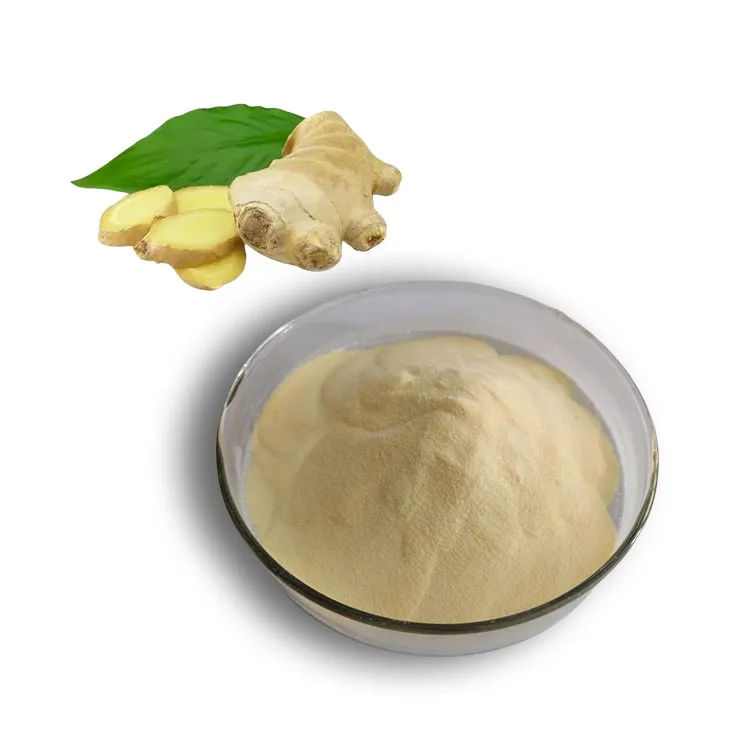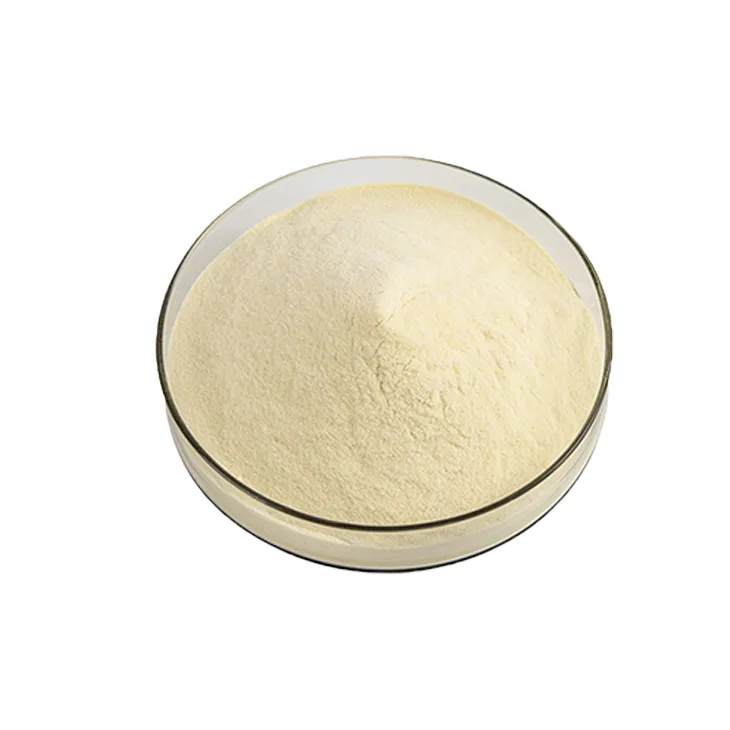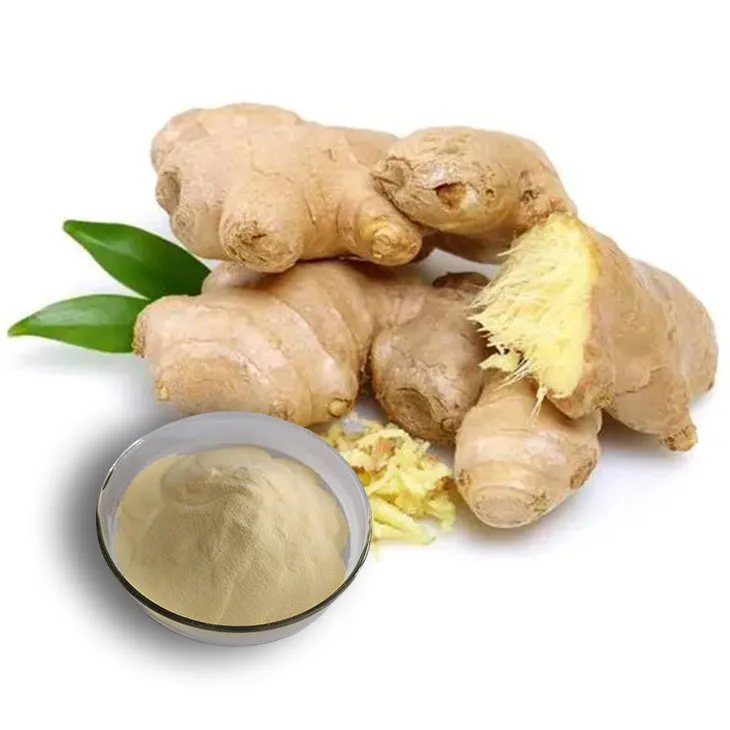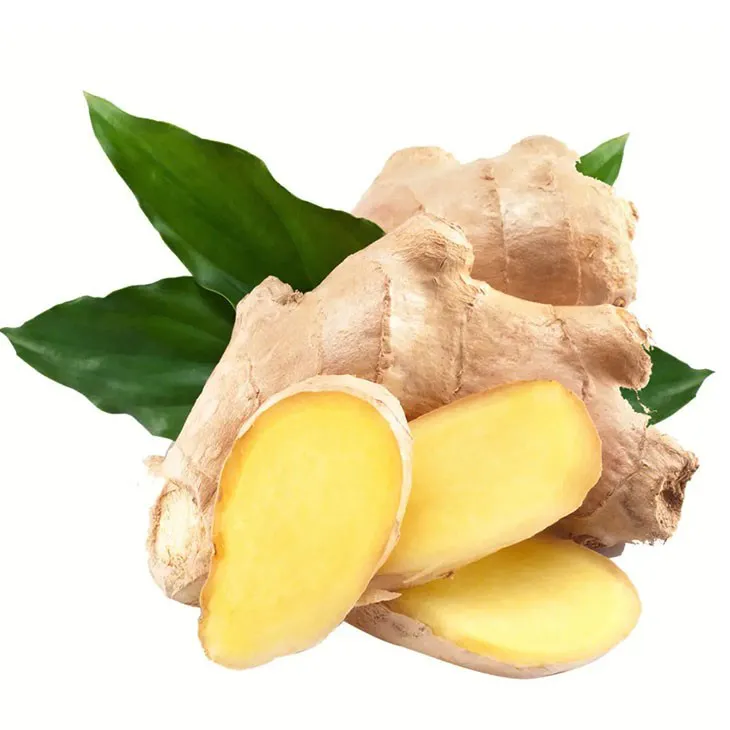- 0086-571-85302990
- sales@greenskybio.com
Ginger Extract: Benefits, Uses and Possible Side Effects
2024-11-13

1. Introduction
Ginger, a well - known spice with a long history of use in traditional medicine, has gained significant attention in modern times. Ginger Extract, which is derived from the ginger root, contains a variety of bioactive compounds that are responsible for its numerous health - promoting properties. This extract has become a popular ingredient in various health products, food, and beverages. Understanding the benefits, uses, and possible side effects of Ginger Extract is crucial for those who are interested in incorporating it into their daily routine.

2. Benefits of Ginger Extract
2.1 Immune System Enhancement
Ginger extract contains antioxidants such as gingerol, shogaol, and zingerone. These antioxidants play a vital role in strengthening the immune system by neutralizing free radicals in the body. Free radicals can damage cells and weaken the immune system, making the body more susceptible to infections. By reducing oxidative stress, ginger extract helps to keep the immune cells functioning optimally and thus enhances the body's ability to fight off diseases.
2.2 Anti - Inflammatory Properties
One of the most well - known benefits of ginger extract is its anti - inflammatory effect. Chronic inflammation is associated with many diseases, including arthritis, heart disease, and certain cancers. The bioactive compounds in ginger extract can inhibit the production of inflammatory cytokines and enzymes in the body. For example, gingerol has been shown to block the activity of cyclooxygenase - 2 (COX - 2), an enzyme involved in the inflammatory response. This makes ginger extract a potential natural remedy for reducing inflammation and alleviating pain associated with inflammatory conditions.
2.3 Digestive Health Improvement
Ginger has long been used to treat digestive problems, and ginger extract is no exception. It can stimulate the production of digestive juices, including saliva, bile, and gastric juices, which helps in the digestion and absorption of food. Ginger extract also has a soothing effect on the gastrointestinal tract and can relieve symptoms such as nausea, vomiting, indigestion, and bloating. It is particularly effective in treating morning sickness in pregnant women and motion sickness in travelers.
2.4 Respiratory Health Support
Ginger extract can be beneficial for respiratory health. It has expectorant properties, which means it helps to loosen and expel mucus from the lungs. This can be helpful in treating coughs, colds, and bronchitis. Additionally, ginger's anti - inflammatory properties can reduce inflammation in the airways, making it easier to breathe. Some studies have also suggested that ginger extract may have antiviral properties, which could further protect against respiratory infections.
2.5 Cardiovascular Health Promotion
Research has indicated that ginger extract may have positive effects on cardiovascular health. It can help to lower blood pressure by relaxing blood vessels. Gingerol and other compounds in the extract may also have a cholesterol - lowering effect, reducing the levels of LDL (bad) cholesterol and triglycerides in the blood. By improving blood lipid profiles and blood pressure, ginger extract may contribute to a reduced risk of heart disease.
2.6 Anti - Cancer Potential
Although more research is needed, some studies have shown that ginger extract may have anti - cancer properties. The bioactive compounds in ginger can induce apoptosis (programmed cell death) in cancer cells, inhibit the growth and spread of tumors, and prevent the formation of new blood vessels that supply nutrients to tumors. However, it should be noted that ginger extract should not be considered a substitute for conventional cancer treatments, but rather a complementary approach.

3. Uses of Ginger Extract
3.1 In the Food and Beverage Industry
Ginger extract is widely used in the food and beverage industry as a flavoring agent. It adds a warm, spicy, and unique flavor to a variety of products, including ginger ale, ginger beer, tea, and baked goods. In addition to its flavor, ginger extract can also enhance the shelf - life of some food products due to its antioxidant properties. For example, it can be used in the preservation of meat and fish products.
3.2 In Dietary Supplements
As a dietary supplement, ginger extract is available in various forms, such as capsules, tablets, and tinctures. People take ginger extract supplements for its health benefits, especially for those who may not be able to consume enough ginger in their diet. It is often used to support immune function, reduce inflammation, and improve digestive health. However, it is important to choose high - quality supplements from reliable sources to ensure safety and effectiveness.
3.3 In Cosmetics and Skincare
Ginger extract is also finding its way into the cosmetics and skincare industry. Its antioxidant and anti - inflammatory properties make it a valuable ingredient in anti - aging products. It can help to protect the skin from oxidative damage caused by free radicals, reduce inflammation, and improve skin elasticity. Ginger extract is used in creams, lotions, and serums to treat various skin conditions, such as acne, eczema, and psoriasis.
3.4 In Traditional Medicine
In traditional medicine systems around the world, ginger has been used for centuries to treat a wide range of ailments. Ginger extract continues to be used in traditional medicine today, often in combination with other herbs. For example, in Ayurvedic medicine, ginger extract may be combined with turmeric and other spices to treat joint pain and digestive disorders. In Traditional Chinese Medicine, ginger is an important ingredient in many herbal formulas for treating colds, flu, and menstrual problems.

4. Possible Side Effects of Ginger Extract
While ginger extract is generally considered safe for most people when consumed in moderation, there are some possible side effects to be aware of.
4.1 Gastrointestinal Disturbances
Some people may experience mild gastrointestinal side effects such as heartburn, stomach upset, or diarrhea when taking ginger extract. These side effects are usually more likely to occur when large amounts of ginger are consumed. To avoid these problems, it is recommended to start with a small dose and gradually increase the amount if needed.
4.2 Allergic Reactions
Although rare, allergic reactions to ginger extract can occur. Symptoms may include rash, itching, swelling, and difficulty breathing. People who are allergic to ginger or other plants in the Zingiberaceae family (such as turmeric) should avoid using ginger extract. If an allergic reaction occurs, medical attention should be sought immediately.
4.3 Interaction with Medications
Ginger extract may interact with certain medications. For example, it can increase the risk of bleeding when taken with blood - thinning medications such as warfarin. It may also affect the absorption or effectiveness of some drugs, such as diabetes medications and antihypertensive drugs. Therefore, if you are taking any medications, it is important to consult your doctor before using ginger extract.

5. Conclusion
Ginger extract offers a wide range of benefits, from enhancing the immune system to promoting digestive and respiratory health, and has various uses in different industries. However, it is important to be aware of the possible side effects and interactions with medications. By understanding these aspects, individuals can make an informed decision about whether to incorporate ginger extract into their daily routine. Whether used for its health benefits or as a flavor enhancer in food and beverages, ginger extract has the potential to play an important role in maintaining a healthy lifestyle.
FAQ:
What are the main benefits of ginger extract?
Ginger extract has multiple benefits. It can enhance the immune system, helping the body fight off diseases more effectively. It also has anti - inflammatory properties which can be beneficial for various health issues. For example, it can assist with respiratory problems by reducing inflammation in the airways. Additionally, it may help with digestion, reducing nausea and improving the overall digestive process.
How is ginger extract used in different industries?
In the food industry, ginger extract is used as a flavoring agent in a wide range of products such as beverages, baked goods, and candies. In the cosmetic industry, it is often included in skincare products due to its antioxidant properties, which can help protect the skin from damage. In the pharmaceutical industry, it may be used in medications or supplements aimed at treating certain health conditions related to inflammation or digestion.
Are there any side effects of ginger extract?
While ginger extract is generally safe for most people, some possible side effects may occur. In high doses, it can cause heartburn, diarrhea, or abdominal discomfort. It may also interact with certain medications, such as blood thinners, so it's important to consult a doctor if you are taking other medications before using ginger extract.
How can ginger extract enhance the immune system?
Ginger extract contains various bioactive compounds like gingerols and shogaols. These compounds have antioxidant and anti - inflammatory effects. By reducing inflammation and oxidative stress in the body, it helps the immune system function better. It can also stimulate the production of certain immune cells, thus enhancing the body's overall defense against pathogens.
Can ginger extract be used for long - term health improvement?
Yes, ginger extract can be used for long - term health improvement. Its anti - inflammatory and antioxidant properties can have a cumulative positive effect on health over time. For example, continuous use may help maintain good digestive health and reduce the risk of chronic inflammatory diseases. However, it should be used in moderation, and any long - term use should be monitored, especially for those with pre - existing health conditions or those taking medications.
Related literature
- The Health Benefits of Ginger: A Review of the Current Literature"
- "Ginger Extract in the Food and Pharmaceutical Industries: Properties and Applications"
- "Ginger and Its Bioactive Compounds: A Comprehensive Study on Efficacy and Safety"
- ▶ Hesperidin
- ▶ Citrus Bioflavonoids
- ▶ Plant Extract
- ▶ lycopene
- ▶ Diosmin
- ▶ Grape seed extract
- ▶ Sea buckthorn Juice Powder
- ▶ Fruit Juice Powder
- ▶ Hops Extract
- ▶ Artichoke Extract
- ▶ Mushroom extract
- ▶ Astaxanthin
- ▶ Green Tea Extract
- ▶ Curcumin
- ▶ Horse Chestnut Extract
- ▶ Other Product
- ▶ Boswellia Serrata Extract
- ▶ Resveratrol
- ▶ Marigold Extract
- ▶ Grape Leaf Extract
- ▶ New Product
- ▶ Aminolevulinic acid
- ▶ Cranberry Extract
- ▶ Red Yeast Rice
- ▶ Red Wine Extract
-
Tamarind extract powder
2024-11-13
-
Black Rice Extract
2024-11-13
-
Ivy Extract
2024-11-13
-
Mango flavored powder
2024-11-13
-
Epimedium extract powder
2024-11-13
-
Kupilu Extract
2024-11-13
-
Artichoke Extract
2024-11-13
-
Hericium erinaceus extract powder
2024-11-13
-
Hawthorn powder
2024-11-13
-
Berberis aristata Extract
2024-11-13





















